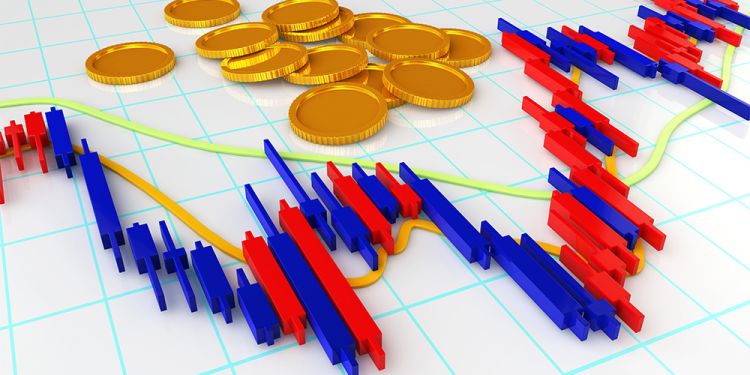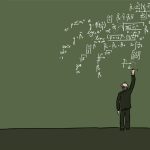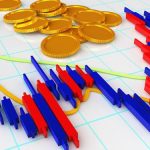Introduction
● In economics, scarcity refers to limitations–limited goods or services, limited time, or limited abilities to achieve the desired ends. Life would be so much easier if everything were free! Why can’t I get what I want when I want it? Why does everything cost so much and take so much effort? Can’t the government, or at least the college or local town, or if not that, my parents just give it to me–or at least make a law so that if I want to buy pizza, there is a pizza shop nearby that has to sell me pizza at a dollar a slice?
● That you can’t have everything you want the moment you want it is a fact of life. Figuring out how individuals, families, communities, and countries might best handle this to their benefit is fundamental to what economics is about.
● You are probably used to thinking of natural resources such as titanium, oil, coal, gold, and diamonds as scarce. In fact, they are sometimes called “scarce resources” just to re-emphasize their limited availability. Everyone agrees natural resources are scarce because they take a lot of effort, money, time, or other resources to get, or because there seems to be a finite amount available.
● But what constitutes a lot of effort, money, time, or other resources? Does it matter if something is finite if we can easily substitute something else? It all depends on your circumstances. Most people don’t think of water as scarce, but if you live in a desert, water is scarce. If you are a teenager or in college, iPhones or the hottest sneakers or the recognition of your peers or a person of interest are as scarce–as difficult to acquire–as gold. If you are running out of space on your hard drive but you can substitute cloud computing, is storage space scarce?
● In fact, economists view everything people want, strive for, or can’t achieve effortlessly as scarce. For example,
● Every time you turn on the tap and get fresh water, that fresh water is part of what economists deem as scarce. Instead of paying your water bill, you could instead hike down to the local river and fill your water bottle in the local stream or creek, as did your forbears only 100 years ago. That would involve your time, and even in the most pure of natural circumstances your worry about whether deer might have polluted the stream or creek with bacteria. Not to mention if you want to shower in clean water or water the summer vegetables you want to grow with clean water.
● The air we breathe and the sun that shines on us is free. But if the air we breathe or the sunlight we bask in are not as perfect or fresh or unpolluted as we envision, are you personally willing to pay more to make it so? If we make sweeping governmental, regulatory changes, are we sure that those changes are not major changes that might affect our friends or others on the earth badly? Or that won’t come back to bite us, even making pollution worse?
● Time is scarce. Every minute you spend reading this is a minute you could alternatively spend reading a novel, catching a baseball game, talking to your friends or family, or working at a soup kitchen. Every time you have to give up something to enjoy what you want, the thing you want is scarce.
Since to an economist, everything people desire or demand is probably scarce, your next question may be how you can analyze the costs and benefits. Or, you may want to know how to supply those desirable goods and services. You may want to ask more about productive resources, including natural resources. If you are intrigued by why diamonds–which seem so frivolous–cost so much more than water–which seems so essential, you might want to skip to margins and thinking at the margin.
Definitions and Basics
● Best-Known Quotes. Milton Friedman, based on Robert Heinlein.
● “There’s no such thing as a free lunch.” (Also known by the acronym TNSTAAFL or TANSTAAFL.)
● Natural Resources, from the Concise Encyclopedia of Economics
● The earth’s natural resources are finite, which means that if we use them continuously, we will eventually exhaust them….
In the News and Examples
● They Clapped: Can Price-Gouging Laws Prohibit Scarcity?, by Michael Munger. Econlib, January 8, 2007. See also associated podcast, Munger on Price Gouging, on EconTalk.
● Hurricane “Fran” smashed into the North Carolina coastline at Cape Fear at about 8:30 pm, 5 September 1996. It was a category 3, with 120 mph winds, and enormous rain bands. It ran nearly due north, hitting the state capital of Raleigh about 3 am, and moving north and east out of the state by morning….
● There were no generators, ice, or chain saws to be had, none. But that means that anyone who brought these commodities into the crippled city, and charged less than infinity, would be doing us a service….
● Chris Anderson on Free, EconTalk podcast. May 12, 2008.
● Chris Anderson talks with EconTalk host Russ Roberts about his next book project based on the idea that many delightful things in the world are increasingly free–internet-based email with infinite storage, on-line encyclopedias and even podcasts, to name just a few. Why is this trend happening? Is it restricted to the internet? Is there really any such thing as a free lunch? Is free a penny cheaper than a penny or a lot cheaper than that? The conversation also covers whether economics has anything to say about free….
● Richard McKenzie on Prices, EconTalk podcast. June 23, 2008.
● Richard McKenzie of the University California, Irvine and the author of Why Popcorn Costs So Much at the Movies and Other Pricing Puzzles, talks with EconTalk host Russ Roberts about a wide range of pricing puzzles. They discuss why Southern California experiences frequent water crises, why price falls after Christmas, why popcorn seems so expensive at the movies, and the economics of price discrimination….
● Diane Coyle on the Soulful Science, EconTalk podcast.
● Diane Coyle talks with host Russ Roberts about the ideas in her new book, The Soulful Science: What Economists Really Do and Why it Matters. The discussions starts with the issue of growth–measurement issues and what economists have learned and have yet to learn about why some nations grow faster than others and some don’t grow at all. Subsequent topics include happiness research, the politics and economics of inequality, the role of math in economics, and policy areas where economics has made the greatest contribution….
● Daniel Botkin on Nature, the Environment and Global Warming, EconTalk podcast.
● Daniel Botkin, ecologist and author, talks with EconTalk host Russ Roberts about how we think about our role as humans in the natural world, the dynamic nature of environmental reality and the implications for how we react to global warming….
A Little History: Primary Sources and References
● Lionel Robbins, biography, from the Concise Encyclopedia of Economics
● Robbins’ most famous book was An Essay on the Nature and Significance of Economic Science, one of the best-written prose pieces in economics. That book contains three main thoughts. First is Robbins’ famous all-encompassing definition of economics that is still used to define the subject today: “Economics is the science which studies human behavior as a relationship between given ends and scarce means which have alternative uses.”…
● Who coined the phrase “the dismal science”? The Secret History of the Dismal Science: Economics, Religion, and Race in the 19th Century, by David M. Levy and Sandra J. Peart. Econlib, January 22, 2001.
● Everyone knows that economics is the dismal science. And almost everyone knows that it was given this description by Thomas Carlyle, who was inspired to coin the phrase by T. R. Malthus’s gloomy prediction that population would always grow faster than food, dooming mankind to unending poverty and hardship.
● While this story is well-known, it is also wrong, so wrong that it is hard to imagine a story that is farther from the truth. At the most trivial level, Carlyle’s target was not Malthus, but economists such as John Stuart Mill, who argued that it was institutions, not race, that explained why some nations were rich and others poor….
Advanced Resources
● Is Economics All About Scarcity?, by Arnold Kling. Blog discussion on EconLog, January 17, 2007.
● … I am two-handed on this issue. On the one hand, just because food, say, has become more abundant does not mean that we can ignore scarcity. At any moment in time, for a given state of know-how, the conventional definition of economics as dealing with the allocation of scarce resources among competing ends applies.
● On the other hand, some of the most interesting economic observations concern relative abundance. Look at our standard of living compared to 100 years ago. Look at South Korea compared with North Korea. Robert Lucas famously said that “The consequences for human welfare involved in questions like these are simply staggering: Once one starts to think about them it is hard to think of anything else.”…


